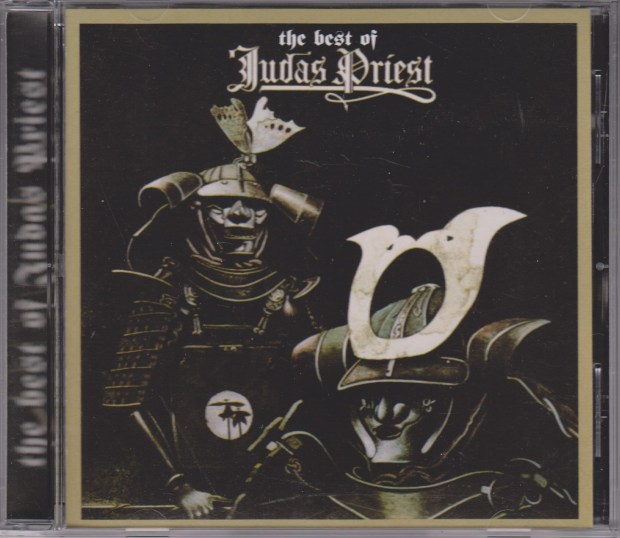 AL ATKINS – Victim of Changes (1998 Pulse)
AL ATKINS – Victim of Changes (1998 Pulse)
Al Atkins was the original lead singer in Judas Priest, before “Bob” Halford was invited to join. You’ll find a number of Atkins credits on the first two Priest albums, even though he was out of the band by that time. In fact, Atkins formed a band called Judas Priest in 1969. The band were named by bassist Bruno Stapenhill. They split in 1970, and Atkins went looking for a new band. He found them in Ken “KK” Downing and Ian “Skull” Hill, who were looking for a singer. With Atkins and drummer John Ellis, they eventually settled on the name Judas Priest, same as Atkins’ prior band. And yes, that means that Ian Hill is actually the only remaining original member of Judas Priest.
Atkins wrote and co-wrote much of Priest’s earliest material. Before he left, he wrote a song called “Whiskey Woman”. Rob Halford used that song and merged it with one of his called “Red Light Lady”. The result was “Victim of Changes”, the first and perhaps greatest of Judas Priest’s epics. Two other songs he wrote in Priest were “Mind Conception” and “Holy is the Man” which were demoed but never released.
Atkins worked a 9-5 job after Priest, but got back into music again in short order. His fourth solo album, Victim of Changes, was essentially a tribute to his Judas Priest years. It is a collection of new recordings of (mostly) a lot of numbers that Priest played live during the Atkins era. As a gimmick, he had Priest’s drummer from the 1980s, Dave Holland, on this album.
Atkins and Halford couldn’t sound less alike. Rob is known for his high-pitched operatics. Atkins has a gutsier, grittier sound, somewhat like a Paul Di’anno meeting Blaze Bayley. There is no question that Rob is the right singer for Judas Priest, so it is really only a matter of curiosity to hear these tunes with Atkins singing. The tunes are at least good.
The unreleased “Mind Conception” commences the disc, re-recorded and very modern sounding especially in the guitars. It is difficult to know exactly what the original “Mind Conception” sounded like, but it’s very safe to say it would not have sounded like this. In the liner notes, Atkins states the original demos were recorded stoned and with a sore throat. “Holy is the Man” has a slower groove to it, and would work very nicely as a modern Priest track. As the only representation of these unreleased tracks available, die-hard Priest collectors will want to hear them. Another track of interest is the cover of Quatermass’ “Black Sheep of the Family” which Priest played live at their earliest gigs (along with Hendrix’s “Spanish Castle Magic”). Rainbow’s recording is still the one to beat.

The familiar Priest tracks are actually anything but. They are probably arranged more like the way Priest used to play them in the early days. “Never Satisfied” is extended with a tough bluesy acoustic intro. The heavy parts have a Zeppelin-y beat, due to Holland’s straightforward style. Same with “Winter”. Then there is “Caviar and Meths” which is a whopping 7:12 long. According to Atkins, this song was their big finale live, but never recorded in full in the studio. This version is the full-length arrangement that they used to close with live. And it’s brilliant. Finally there is “Victim of Changes” itself, and Atkins has some help from a backup singer for the high parts that Rob does.
There are a couple tracks that could be considered filler, since they have nothing to do with Judas Priest. These are the instrumentals “The Melt Down” and “Metanoia”, written by guitarist Paul May. They are excellent tracks, however, and should not be ignored. (“Metanoia” serves as a postscript to “Winter” on the CD.) They are European sounding heavy metal tracks, loaded with guitar drama and ferocity.
Check out Victim of Changes for a glance at what Priest might have sounded like with Al Atkins singing lead. One can hope for those unreleased demos to surface, but one can also wish for the moon.
3/5 stars















